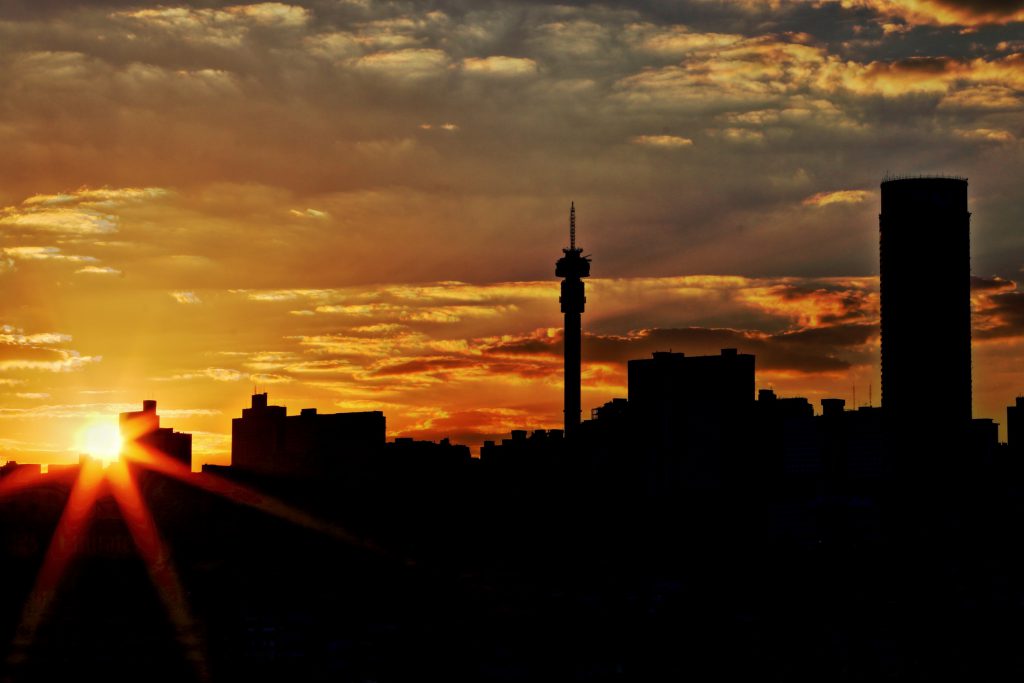Infrastructure
City Of Joburg Goes Back To Basics
To foster growth and ensure that Africa’s cities are well connected and economically dense will require huge infrastructure investments. This is according to the World Bank publication Africa’s Cities: Opening Doors to the World.
The City of Joburg (CoJ) is no different as it suffers the same challenge of infrastructure underinvestment as most African cities and currently sits with an infrastructure backlog of R170-billion.
As it stands, the CoJ’s existing infrastructure is in dire straits. However the city only has an estimated R7bn to invest in infrastructure development, including the development of large-scale projects involving water, transport, electricity and housing, says mayor Herman Mashaba.
“Owing to our funding challenges, the CoJ does not have sufficient funds to execute many of the required large-scale infrastructure projects, including upgrading our power infrastructure. For instance, to ensure that the city has reliable up-to-standard power, it needs to invest an estimated R68bn in electricity infrastructure upgrades. Currently, 27% of the existing substations have reached 100% of their useful life, while 45% are sitting at 75% of their usefulness.”
Added to this, a total of R481-million is required for the electrification of formal and informal settlements in the surrounding areas in the medium term, says Mashaba.
In fact, according to Mashaba’s State of the City’s Infrastructure report delivered in November last year, power utility City Power has a funding shortfall of R19.8bn.
According to the report, the condition of the road network shows a 25% deterioration – it dropped from a high of 89% in 2013 to 64% today. To date 23% of surfaced roads require resurfacing (around 2 852km).
The total backlog for road surfacing stands at a whopping R11.8bn, says Mashaba. The city, however, has only R240m available in the current financial year to meet this obligation.
Most disturbing though is the state of the city’s 902 bridges, of which only 6% are either in “very good or good” condition. An estimated 77% of bridges are in “poor or very poor” condition. The city has around R140m to meet its bridge infrastructure backlog in the current financial year which sits at a massive R6.5bn.
Owing to the city’s meagre coffers, Mashaba is focusing on repairs and maintenance to the city’s existing infrastructure.
Turning the City of Joburg into a construction site
Creating a city that caters to the needs of its people is Mashaba’s vision. He remains bent on turning the Joburg city centre into a construction site – this in a bid to realise his vision of delivering basic services to the city; and he has already courted the private sector into remodelling the city to become efficient and attractive to investment.
As it stands, the city remains hampered by poor, ill-maintained infrastructure and insufficient housing to adequately accommodate inner-city residents, a number of whom live in appalling conditions, including the almost 190 informal settlements scattered around the city.
Around 300 000 city dwellers are low-income earners, earning between R800 and R2 000 per month, and desperately need additional accommodation.
Given this sorry state of affairs, Mashaba is determined to “turn the city into a construction site”, which entails demolishing dilapidated buildings and rebuilding high-rise mixed-use developments to accommodate the mostly low-income earners and the “missing middle class”.
“We are expropriating hijacked buildings and those whose owners are not willing to refurbish to ensure that they meet the required safety levels.”
Apart from its five million residents, the CoJ attracts roughly 3 000 new entrants every month, including rural migrants and foreigners, which means that it is unable to adequately meet the needs of the constantly growing city.
“To date we have identified 500 buildings that need to be developed into high-rise developments,” says Mashaba.
At the end of March, 13 building projects had already been put out to tender with a further 68 building contracts scheduled for the tendering process by June.
Given the space constraints, the city is evaluating the option of expanding its housing initiative to other nodes, including Roodepoort and Randburg, which could provide housing for “thousands” of people through high-density accommodation.
With “just over R7bn to plug a R170bn infrastructure backlog”, Mashaba remains committed to unlocking avenues for additional revenue.
“We estimate that the CoJ loses between R7bn and R10bn per annum in revenue through activities such as illegal electricity connections – money that can be used to improve basic services and attract more businesses to the city,” says Mashaba.






 Sign-up and receive the Business Media MAGS newsletter OR SA Mining newsletter straight to your inbox.
Sign-up and receive the Business Media MAGS newsletter OR SA Mining newsletter straight to your inbox.